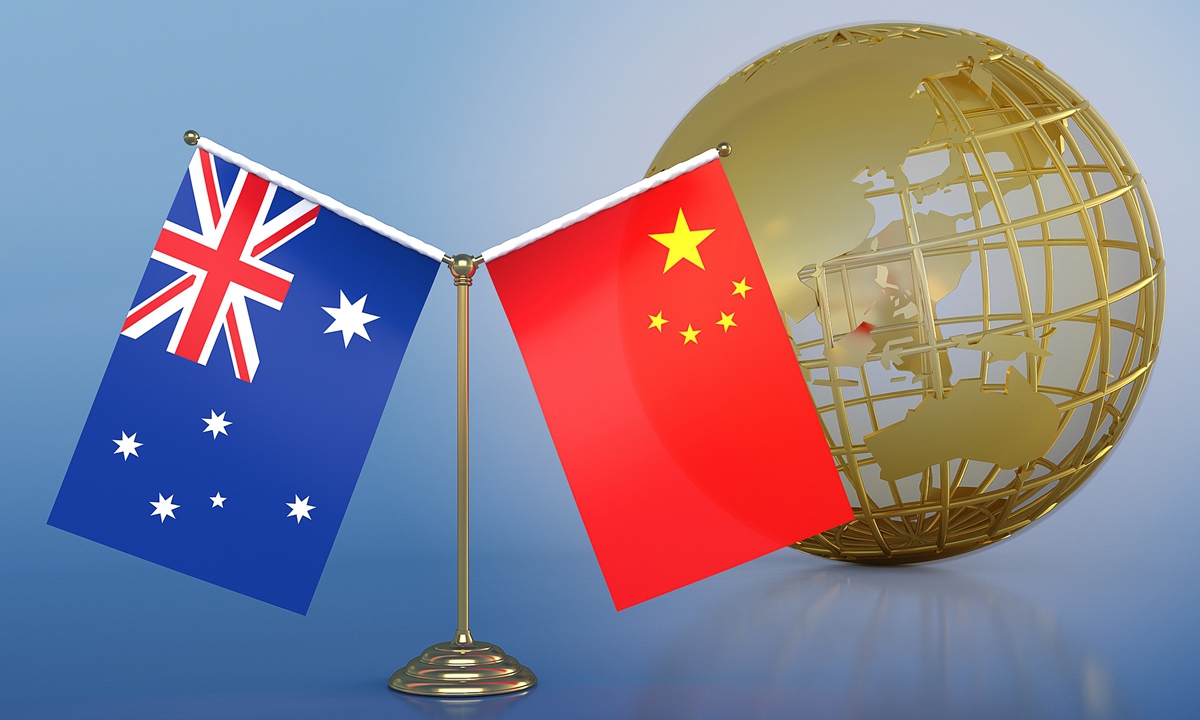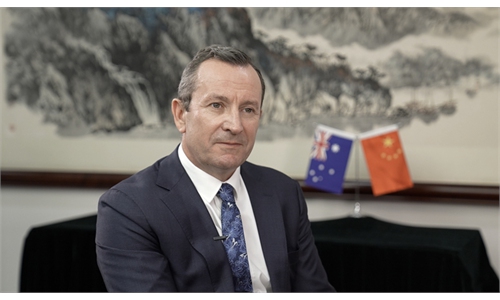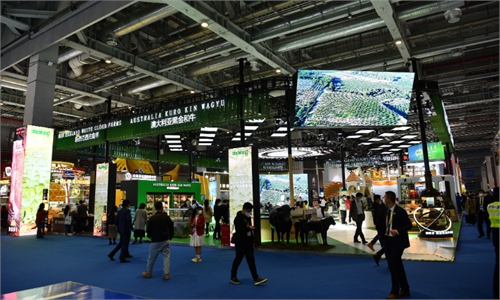
China Australia Photo: CFP
An industry delegation from Australia, consisting of about 15 senior business executives across a range of sectors including financial services, healthcare, mining, energy, telecommunication and technology, will head to China this week for a tour, the first of its kind in three years.
The executives, following recent high-level contacts between Chinese and Australian government officials, will seek opportunities from China's high-quality growth which sends clear signals for closer collaboration in trade and investment, the Global Times learned from the Australian China Business Council (ACBC), the organizer of the delegation, over the weekend.
Companies include HSBC, Cochlear, Rio Tinto, Fortescue Future Industries, and King & Wood Mallesons, the Global Foundation and officials from Melbourne city will also be included, according to the ACBC.
David Olsson, president and chair of the ACBC, told the Global Times in an exclusive interview that the visit is intended to offer "an opportunity for Australian industry to learn first-hand through private briefings and site visits about China's new high-quality growth agenda."
"It also sends a clear signal to China's business community that Australian business is looking to collaborate on many new trade and investment opportunity areas on our shared path to net zero (emissions)," Olsson said.
The delegation will be joined by other Australian companies on the ground in the Chinese mainland and the Hong Kong Special Administrative Region for various events.
Representatives from Austrade, the Australian Trade and Investment Commission, will be with the delegation to arrange one-on-one meetings with Chinese companies.
The timing of the trip, the first major Australian industry-wide business delegation in the past three years, is significant since it comes after China's downgraded epidemic response and improved bilateral relations since the leaders of the two countries met at the G20 Summit in Bali, Indonesia in November.
Australian Trade Minister Don Farrell's coming visit to China and recent visits by two governors of Australian states to China, and visits by China's Vice Foreign Minister Ma Zhaoxu and Vice Minister of Agricultural and Rural Affairs Ma Youxiang to Australia, all represent joint efforts to shore up ties.
Australia will remain a trusted supplier to China of commodities and a highly regarded destination for tourism and education, but there are more areas of complementarity, Olsson said, such as healthcare, agribusiness and processing that can support agricultural development. There is also huge potential to collaborate on green economy and reduction of carbon dioxide emissions, he said.
Business delegations from China are also heading to Australia. During the past month, ACBC branches in Australia have hosted delegations from China's Sichuan, Jiangsu and Shandong provinces, with more on the way.
Olsson said that the delegation led by ACBC is building on the work done by governments, diplomats and trade officials in the past months to shore up bilateral economic and commercial ties.
"Given the importance of our trading relationship with China, we look forward to this delegation opening the way to more frequent visits by Australian companies to China," he said.
Chen Hong, president of the Chinese Association of Australian Studies, and professor and director of the Australian Studies Centre at East China Normal University, told the Global Times that the visit is a positive sign of the speedy recovery of bilateral economic and trade ties.
Trade in major goods is picking up. In February, Australia exported 72,900 tons of coking coal and 134,200 tons of other coal to China. In March, the figure for coking coal was 284,900 tons and that of other coal was 1,765,100 tons, according to the General Administration of Customs.
With the resumption of Australian coal exports to China, Australia's total exports to China surged by 20 percent in the first three months this year.
In a sign of thawing relations, the two countries reached a consensus on the resolution of a barley dispute under the framework of the WTO, per China's Ministry of Commerce on April 11. And analysts are watching when Australian lobster exports to China will resume.
"Australian lobster exports to China may resume as soon as later this year," Chen said.
However, Chen noted that although Australian lobsters are favored by Chinese consumers, they face competition from exports from countries such as Indonesia and New Zealand. In addition, the resumption of Australia's lobster trade requires close bilateral cooperation in entry quarantine and other aspects, the expert said.


